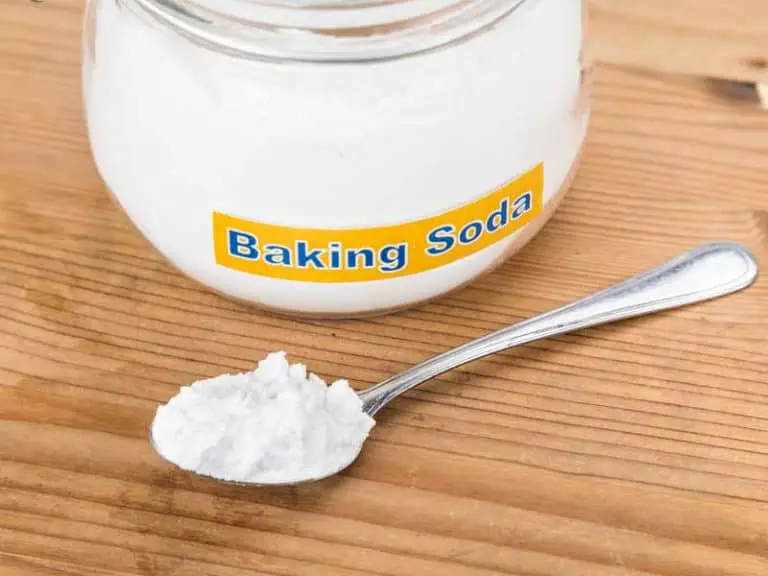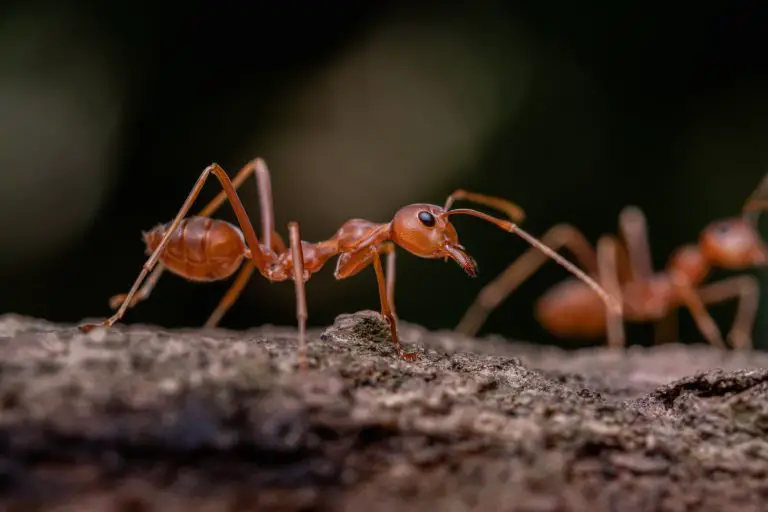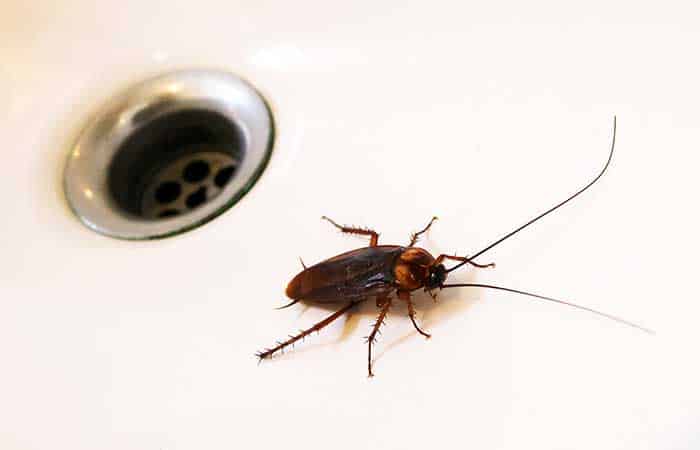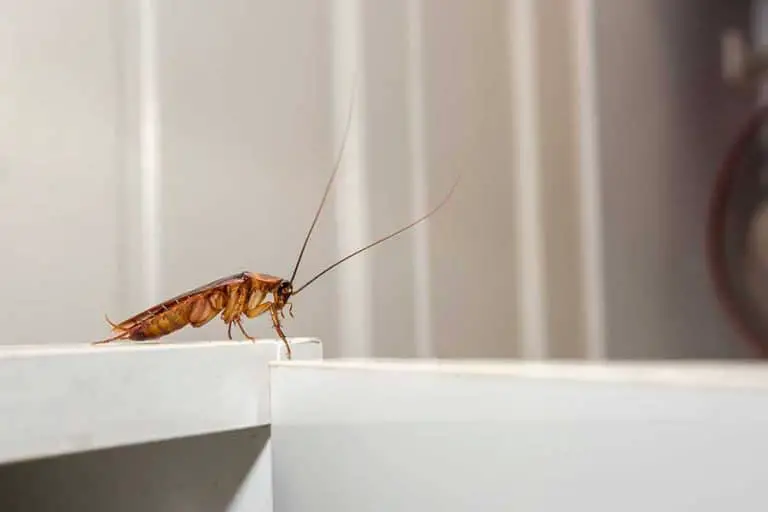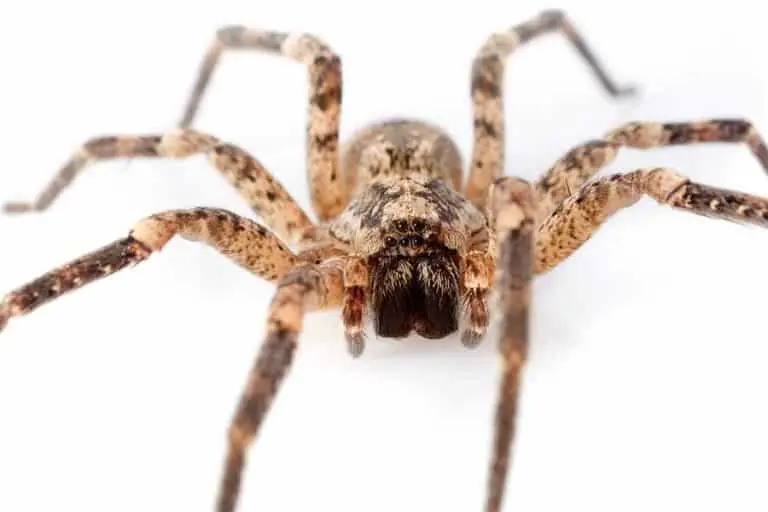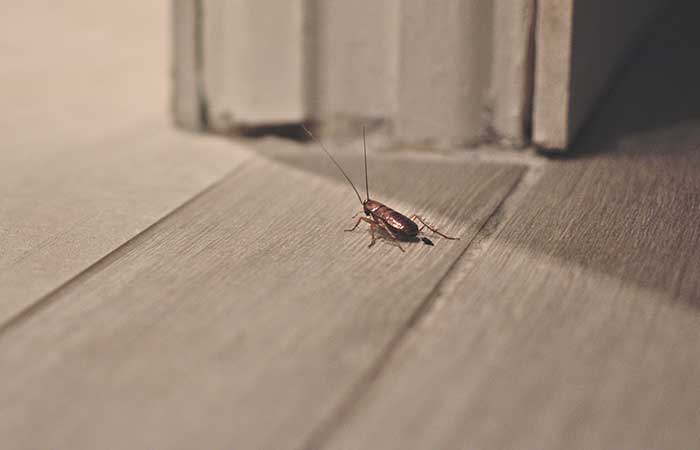Does Bleach Kill Cockroaches?
The cockroach is one of the most resilient insects on the planet, able to survive nuclear fallout and can walk around without a head for over a week. Bleach, on the other hand, can supposedly kill just about anything, given time and proper application. When an unstoppable object meets an immovable wall, one has to give. So does bleach kill cockroaches?
Bleach will kill a cockroach if you drown the thing in it or simply hose the cockroach down until it accidentally ingests some of it. As far as a contact kill, not even bleach is strong enough for that.
Eradicating cockroaches is no easy task, especially if they’ve established a foothold on your territory. Bleach is an effective roach deterrent, however, so all is not lost just because saturating a cockroach won’t kill it.
Cockroaches can survive fifteen times the amount of radiation exposure that a human can. Spraying one with bleach—even undiluted pure bleach—probably amounts to a horrible smelling bath from the roaches’ perspective.
What Happens If You Spray A Roach With Bleach?
Most likely it will irritate it and cause it to scurry off, often in the direction of your toes—cockroaches can run up to 3mph, sometimes faster—so if the purpose is to make it run, by all means, spray it with bleach.
What it will do is make the cockroach and all of its buddies vacate the area until such time as the bleach smell tapers off. Cockroaches do hate the smell of bleach. The olfactory receptors on their antennae are adverse to it and a roach will avoid it at all costs.
The problem with bleach is (no matter how much our eyes water at the smell of it) that it will dissipate in a short period of time. Regardless of how much you lay down, cockroaches will eventually return to traffic in that area or to hunt water or food.
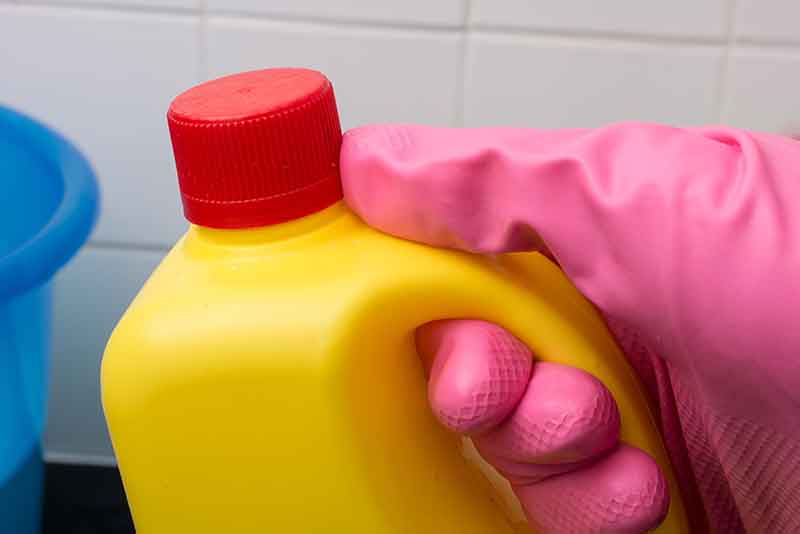
Does Bleach Kill Roach Eggs?
Like their nymphs and adult brethren, cockroach eggs aren’t so easy to kill. Given time and a good soak, bleach will do the trick. Cockroach eggs, unfortunately, have another layer of protection that their hatched relatives do not, and it’s called the ootheca.
The ootheca is a hardened shell casing that encapsulates the cockroaches’ eggs. If you decide to soak the eggs in bleach (not recommended), you’ll have to find the ootheca.
There are four common varieties of cockroach in the United States and Canada and they each lay a specific type of ootheca:
- The American Cockroach: This is the largest of the four and isn’t as threatening when it comes to an all-out infestation. They’re often called Palmetto Roaches or Palmetto Bugs because they love to reside in Palmetto plants and oak trees. Their ootheca is shiny, hard, and dark brown, resembling polished furniture. They’re shaped like a bean and roughly ¼ to ⅓ inches in length.
- The Oriental Cockroach: This is the second largest of the four common roach varieties. Their ootheca is almost twice the size of the American cockroach ootheca and looks almost the same. It’s easy to confuse the two unless you stack them against one another to see the size difference.
- The Brown-Banded Cockroach: This cockroach is the smallest of the four and their ootheca is the smallest as well. Brown-Banded roaches can easily be confused with nymphs from other roach species. Their ootheca is small, has ripples or ridges along with their shell, and is usually just a shade lighter brown than the American and Oriental ootheca.
- The German Cockroach: The third largest of the four, these are the roaches that are usually responsible for a mass infestation. Their females can hatch up to 30,000 eggs in a single year. Their ootheca is the lightest brown of the four, sometimes yellow. Like the Brown-Banded roach, the ootheca usually has a rippled appearance and is generally ¼ to ⅓ inches in length.
Soaking the ootheca in bleach will certainly kill them, however, it’s an unnecessary task that would require locating them, removing them, and placing them in a vat of bleach until they succumb.
Uses For Bleach In Repelling Cockroaches
While bleach serves very little purpose as a direct method of repulsion or death, it has some indirect uses. For one, roaches hate the smell of it and will vacate the area quickly until the smell dissipates.
- Sink and Bathtub Drains: Pour about ¼ cup of bleach down into the drain, plug it and wait half an hour. The cockroaches it doesn’t drown will vacate the pipe on the other end asap. After thirty minutes, unplug it and run hot water to clear it out.
- Cleaning the Floors or Hard Surfaces: Use diluted bleach whenever you clean hard surfaces or hardwood/tile floors. Roaches hate the smell of it and although the smell goes away, they’re less likely to invade clean areas where there are no food crumbs or water.
Bleach is very effective at killing viruses, bacteria, and fungi, things that cockroaches spread in abundance. So while it won’t directly kill them, it is an effective deterrent and sanitizer.
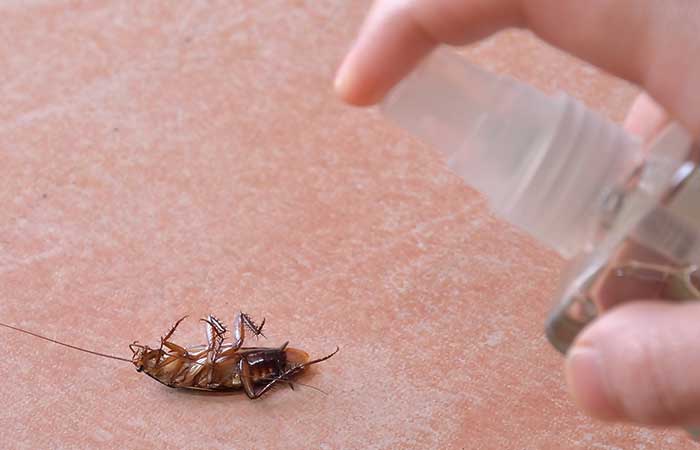
Do Any Household Products Kill Cockroaches?
There are several products typically used or found in the home that are effective at killing cockroaches or at least deter them more effectively than bleach.
A cockroach can withstand 900 times its body weight before being crushed, so while a boot is effective, it’s probably more effort than you think. Also, killing one hardly kills the nest.
Essential Oils
Essential oils catch a lot of flak, primarily because some people believe they’re a cure for everything. While that’s not the case, they are useful in curing your home of cockroach infestations.
- Peppermint Oil: This stuff is potent and cockroaches would agree. Like bleach, a direct application won’t kill a cockroach, however, diluting it in a spray and hosing down areas that cockroaches frequent will have them abandoning those positions in a hurry.
- Tea Tree Oil: Once again, this won’t kill roaches by direct application but it is potent, potent enough that undiluted tea tree oil will burn your skin. Like the peppermint, dilute it and use it to spray problem areas after you’ve thoroughly cleaned them.
Essential oils aren’t the miracle cure for everything that people make them out to be. They’re also unregulated, so be careful when applying them and never let any get on your skin or around your pets.
It is an effective deterrent similar to bleach in that the smell is not attractive to cockroaches at all. Its best application would be in areas where food is stored (remove the food before spraying it) or inside and behind dressers.
Boric Acid
Boric acid, unlike essential oils and bleach, will kill cockroaches. Better yet, the roaches that feed on the roaches that consumed boric acid will also die.
It’s a super-spreader of carnage for the roach population. Also, you can make it into appetizing little roach balls:
- Start with ½ cup of boric acid.
- Add ½ cup of flour.
- Add ½ cup of water.
- Add ½ cup of sugar.
- Mix the three ingredients until it turns into a doughy substance that’s pliable, something you can mold.
- Layout the dough and pinch off enough to make a ball, about ½ inch around.
- Lay your new boric acid balls in high traffic areas or areas that are dark, moist, and out of the way.
The cockroaches won’t be able to resist the lure of the sugar content. They’ll consume it and die while the other cockroaches will consume their dead friend because he smells suspiciously like sugar and flour. They’ll die too.
Boric acid works as a dehydrator. Roaches can typically go about a week without water. However, two days without water will make them lethargic and slow.
As the Boric acid leeches the water from them, they’ll die far quicker than the average week-long period.
Borax
Boric acid is a derivative of Borax, which is a household chemical commonly used as an additive for laundry and/or dish detergents. Borax kills cockroaches in the same way that Boric acid does, by penetrating the exoskeleton and dehydrating the roach.
There are several good borax recipes but the most common ones involve sugar, cocoa powder, or peanut butter.
- Peanut Butter: Simply roll a ball of peanut butter and sprinkle it with Borax.
- Cocoa Powder: Mix equal parts cocoa powder and Borax in a bag. Use the bag to sprinkle the mixture in areas where you suspect or have seen cockroach activity.
- Sugar: Sugar is another common ingredient combination with Borax. Like the cocoa powder, simply mix equal parts of both and sprinkle it in known or suspected areas.
Borax is far more common in houses than boric acid. While boric acid is easy to buy, you may have all the Borax necessary under the kitchen cabinet.
Baking Soda
Baking soda works to kill roaches by bubbling up inside their digestive system until the cockroaches’ insides burst. No, it won’t be a disgusting explosion, probably not even noticeable. However, other cockroaches will eat it and spread the love from there.
You can use any or all of the same methods used for Borax. Sugar, cocoa powder, peanut butter, and egg yolks all work well with baking soda. With the egg yolks and peanut butter, simply sprinkle them with baking soda to set the bait.
Diatomaceous Earth (DE)
Primarily used as a pool cleaning chemical, DE is just as effective as Borax and Boric Acid. It works in the same way too, penetrating the exoskeleton and dehydrating the roach. Also, like Borax and Boric acid, if the roaches eat their dead compatriots, they’ll die too.
The best way to use DE is to get the EPA-registered, food-grade variety and mix it with powdered sugar. spread the mixture in high-traffic areas and wait for the carnage to begin.
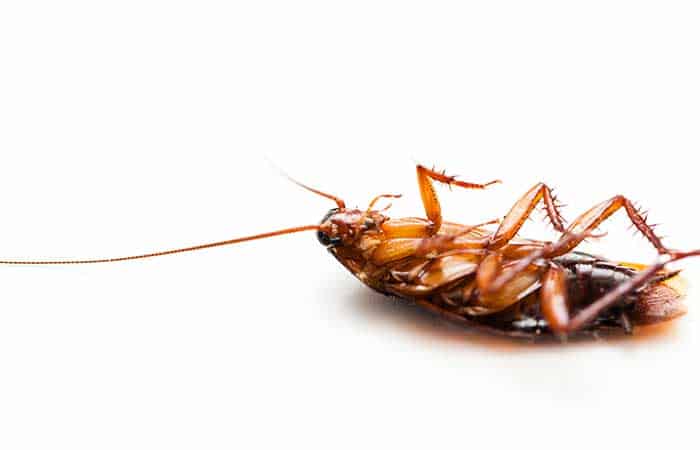
What Kills Cockroaches Instantly?
Now that the “does bleach kill cockroaches” question is answered, it may come down to abandoning household solutions to effectively eradicate an infestation.
German cockroaches are especially crafty and will often not return to or ignore some of the household baits listed above. To kill them, either a professional exterminator may need to get involved or purchasing the right pesticide for a DIY project.
Ortho Home Defense Killer: This stuff is not suitable for pets and small children and should be applied while wearing a mask or with some form of ventilation. It kills well and it kills quickly. Not only does it eliminate roaches, but nearly everything else that crawls around on six or eight legs. It also lasts three months and is best applied along the entire perimeter, inside and out.
- Ortho Home Defense Insect Killer for Indoor & Perimeter2 is a bug killer spray that kills the toughest home invading insects, including ants, cockroaches, spiders, fleas, ticks, scorpions, earwigs, silverfish, and periodical cicadas (as listed)
- Provides a long-lasting bug barrier of up to 12 month protection (against ants, roaches, and spiders indoors on non-porous surfaces)
- Apply this pesticide anytime as a preventative treatment or after you see evidence of insect activity
- Use this pest control spray with confidence indoors (kitchens, bathrooms, doors and windows) and outdoors (perimeter of foundations, patios and decks, garages) wherever insects are a recurring problem
- The easy-to-use continuous spray Comfort Wand helps you control insects easily and accurately without any bending, pumping, or hand-fatigue
Advion Syngenta Cockroach Gel Bait: This is most effective when applied in suspected areas. It’s an attractive bait for roaches, so they’ll come to it. It’s also dangerous for pets and small children, so make sure it’s placed in an area where neither can reach.
- COCKROACH CONTROL: Advion Cockroach gel bait from Syngenta is a high-performing bait product targeting many pest species of cockroaches including German, American and gel bait-averse cockroaches. It’s formulated with 0.6% indoxacarb, which is a potent, non-repellent active ingredient used for trusted pest control.
- VERSATILE USAGE: Advion Cockroach Gel Bait is suitable for indoor and outdoor use. Thanks to its targeted MetaActive effect that differentiates between target insects and non-target organisms, it’s highly unlikely to negatively affect people or pets.
- HIGHLY ATTRACTIVE FORMULATION: Advion Cockroach has a high-consumption bait matrix with ingredients that attract roaches to feed. Once consumed, treated cockroaches transfer the bait to as many as 40 other cockroaches, aiding in control of the infestation in as little as 24 hours.
- EFFORTLESS APPLICATION: With a plunger and user-friendly tips included, this non-repellent roach gel killer is designed for effortless placement in cracks, crevices and other hard-to-reach areas where cockroaches commonly hide. Clean areas and apply roach killer gel in cracks and crevices.
- CONVENIENT PACKAGE: This package includes four 30-gram syringes of Advion roach gel, which remain effective for three years.
Combat 12-Month Roach Killing Bait: These bait traps are similar to the gel bait. They serve as an attractant for roaches who come, eat, and return home to die and spread the poison. This method is the least dangerous to pets and children, although neither should be allowed to handle them.
- Quick Kill Formula – Your secret weapon against roaches Starts working as soon as roaches feed on the bait - killing the ones you see and the owns you don’t.
- Eliminates the nest – Roaches take the bait back to the nest, killing tother roaches and destroying the nest.
- Protects your home – Child resistant bait stations provide continuous maximum roach control for up to 12 months.
- Ready to Use – Easy to use with nothing to activate. No mess, vapor, fumes, or odor.
- Use throughout your home – place bait stations wherever roaches are seen, near doors and windows, along baseboards, near pet food storage and inside cabinets and drawers.
All Things Considered
Does bleach kill cockroaches? The simplest answer is no, although it can do so in large amounts by simply drowning them or if they consumed it in some way. However, it is an effective deterrent, albeit in a very temporary manner.
If it’s a DIY kind of project and you don’t want to incur the extra expense of hiring an exterminator, there are plenty of household chemicals that will do the trick far more effectively than bleach, such as Borax, Boric Acid, Baking Soda, and Diatomaceous Earth.
Fortunately, bleach is still an effective remedy because using it to clean the house is a long-term solution.
Roaches don’t like clean areas and diluted bleach is great for killing the viruses and bacteria that roaches spread while serving as a preventative against their return.




